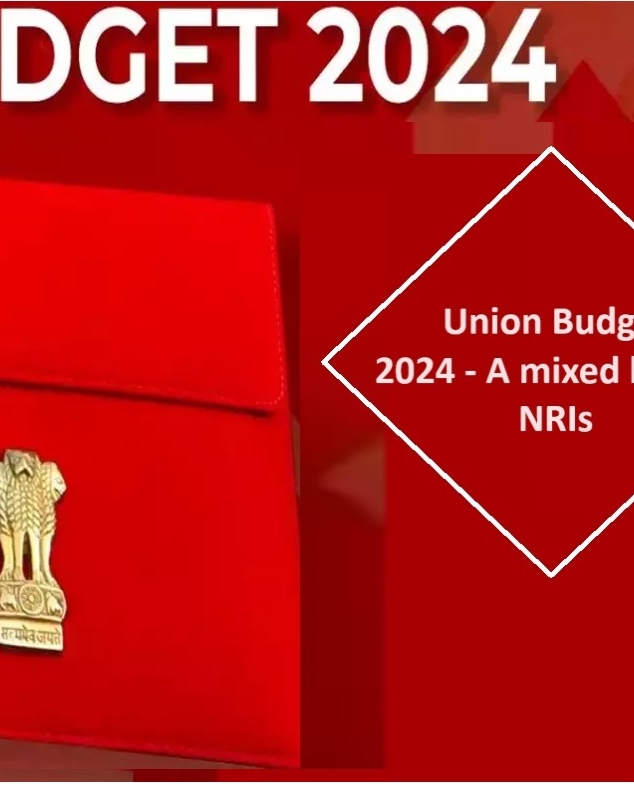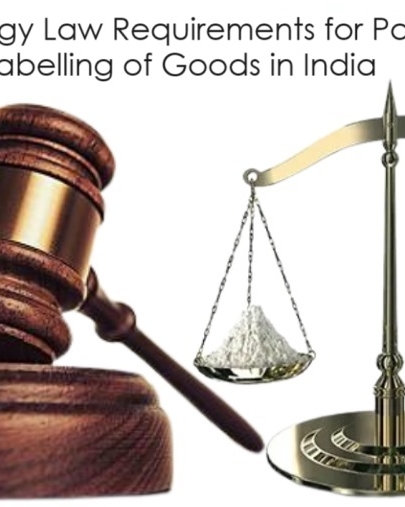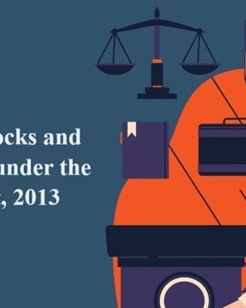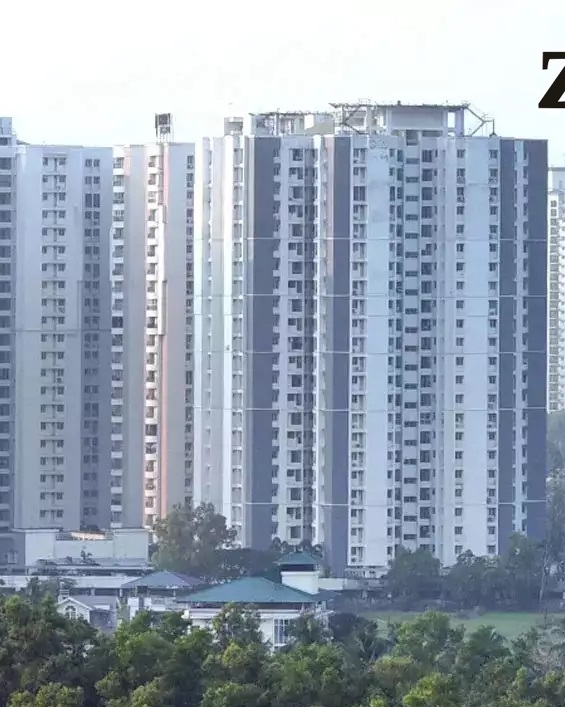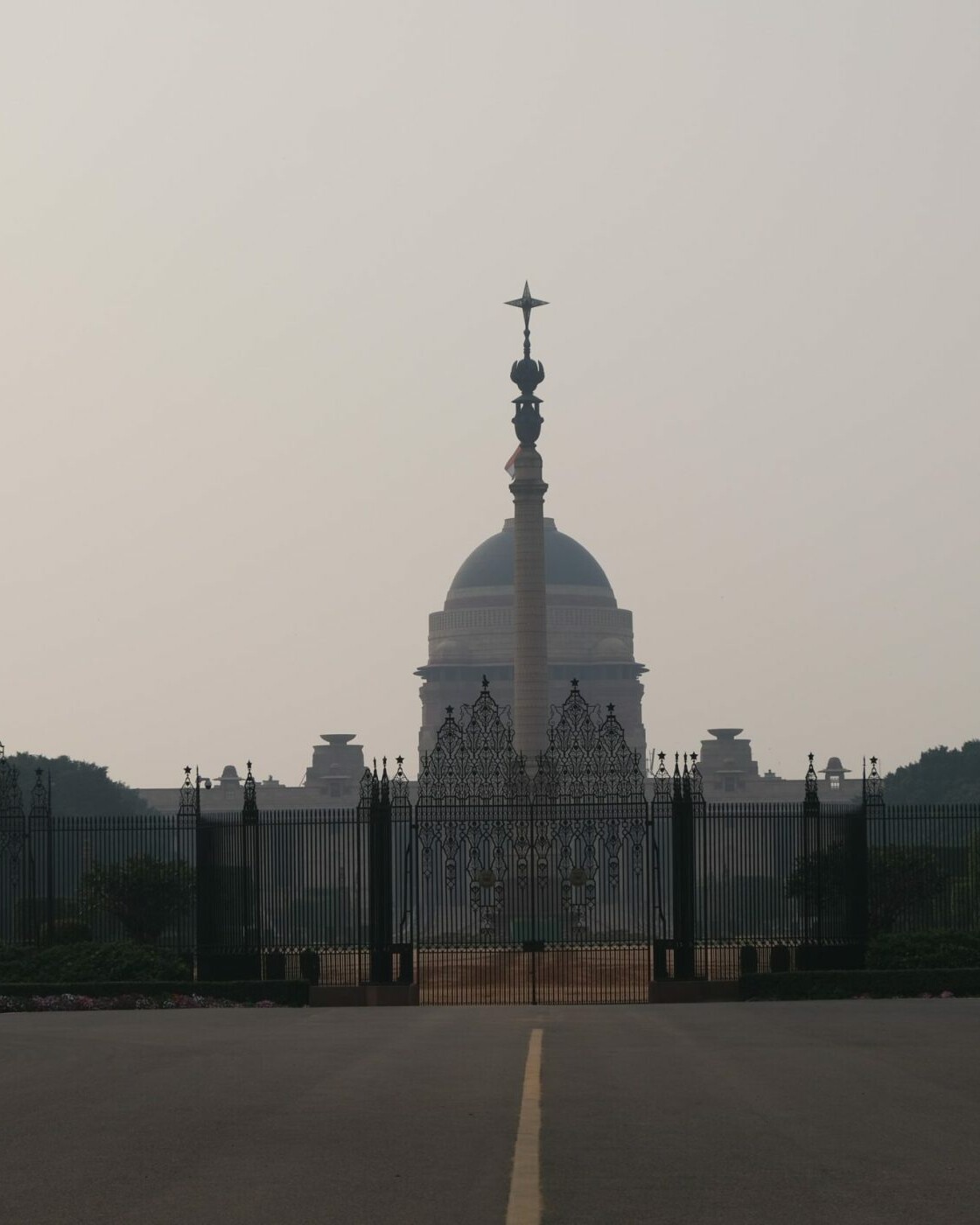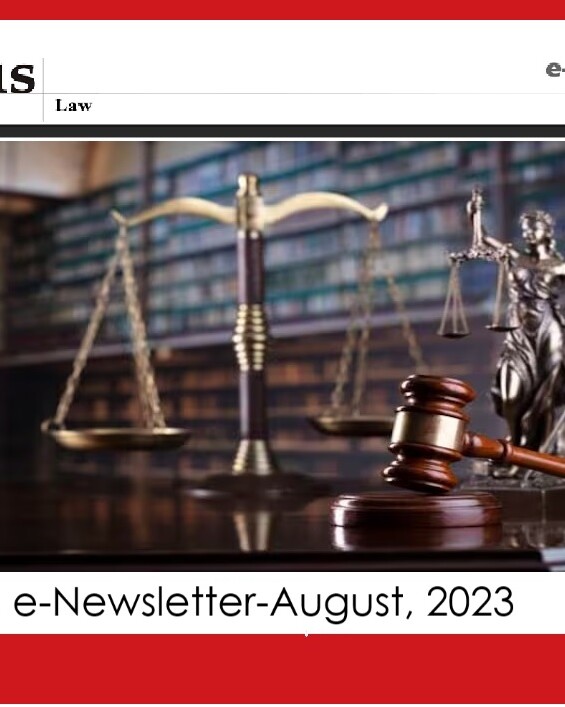Highlights:
Corporate Brief
- Department of Promotion and Industry of Internal Trade reviewed the Foreign Direct Investment (FDI) policy on Space Sector vide Press Note No.1 (2024 Series).
- Notification No. G.S.R. 107(E) dated 14.02.2024 issued by MCA notifying the Companies (Registration Offices and Fees) Amendment Rules, 2024.
- Notification no. RBI/DoS.DSG/2023-24/110 dated 27.02.2024 issued by RBI notifying the Master Direction- Reserve Bank of India (Filing of Supervisory Returns) Directions- 2024.
- Notification no. RBI/2023-24/71 dated 29.02.2024 issued by RBI notifying the Master Direction- Reserve Bank of India (Bharat Bill Payment System) Directions, 2024.
- Circular no. SEBI/HO/CFD/PoD-1/P/CIR/2024/009 dated 06.02.2024 issued by SEBI regarding Guidelines for Returning of Draft Offer Document and its Resubmission.
- Circular no. SEBI/HO/DDHS/DDHS-PoD/P/CIR/2024/10 dated 08.02.2024 issued by SEBI regarding Revised Pricing Methodology for Institutional Placements of Privately Placed Infrastructure Investment Trust (InvIT).
- Circular no. SEBI/HO/MIRSD/SECFATFP/P/CIR/2024/12 dated 20.02.2024 regarding centralisation of certifications under Foreign Account Tax Compliance Act (FACTA) and Common reporting Standards (CRS) at KYC Registration Agencies (KRAs).
RERA Brief
- Order dated 02.02.2024 issued by Real Estate Regulatory Authority, Uttar Pradesh (“UP RERA”) regarding Standard Operating Procedure (SOP) for Settlement Agreement.
- Direction dated 16.02.2024 issued by Real Estate Regulatory Authority, Odisha (“Odisha RERA”) regarding appointment of Grievance Redressal Officer by the Promoters.
- Direction dated 19.02.2024 issued by Odisha RERA under regarding submission of Annual Audit Certificate by promoters developing project from their own resources.
- Memo dated 22.02.2024 issued by UP RERA regarding dos and don’ts in advertisements and promotion of real estate projects.
- Order dated 29.02.2024 issued by UP RERA regarding SOP for the withdrawal of the project registration.
NCLT Brief
- Financial Assistance towards Working Capital is Financial Debt under the I&B Code
Litigation Brief
- Court or Tribunal cannot rewrite the terms of an agreement.
- Delhi High Court Nullifies Unilateral Appointment of Arbitrator in Contract’s General Conditions.
- DIRECTORS OF A COMPANY CANNOT BE MADE PARTY TO THE ARBITRATION PROCEEDINGS OF THE COMPANY
Corporate Brief
Department of Promotion and Industry of Internal Trade reviewed the Foreign Direct Investment (FDI) policy on Space Sector vide Press Note No.1 (2024 Series).
- Department of Promotion of Industry and Internal Trade, vide Press Note No. 1 (2024 Series) has reviewed the FDI policy on Space Sector.
- The entry route for the various activities under the amended policy are as follows:
- Upto 74% under Automatic route: Satellites-Manufacturing & Operation, Satellite Data Products and Ground Segment & User Segment. Beyond 74% these activities are under Government route.
- Upto 49% under Automatic route: Launch Vehicles and associated systems or subsystems, Creation of Spaceports for launching and receiving Spacecraft. Beyond 49% these activities are under Government route.
- Upto 100% under Automatic route: Manufacturing of components and systems/ sub-systems for satellites, ground segment and user segment.
Notification No. G.S.R. 107(E) dated 14.02.2024 issued by MCA notifying the Companies (Registration Offices and Fees) Amendment Rules, 2024.
- The Ministry of Corporate Affairs vide Notification No. G.S.R. 107(E) dated 14.02.2024, notified the Companies (Registration Offices and Fees) Amendment Rules, 2024, effective from February 16, 2024. Vide the notification the Companies (Registration Offices and Fees) Rules, 2014 have been amended to insert provisions regarding the Central Processing Center.
- According to the amendment the Registrar of the Central Processing Centre shall examine or cause to be examined every application or e-Form or document required or authorized to be filed or delivered for approval, registration or taking on record by the Registrar.
- The Registrar shall take a decision on the application, e-forms or documents within 30 (thirty) days from the date of its filing excluding the cases in which the approval from competent authorities is required.
Notification RBI/DoS.DSG/2023-24/110 dated 27.02.2024 issued by RBI notifying the Master Direction- Reserve Bank of India (Filing of Supervisory Returns) Directions- 2024.
- RBI vide the notification dated February 27, 2024 notified the Master Direction – Reserve Bank of India (Filing of Supervisory Returns) Directions, 2024 (“SR Directions”) to create a single reference for all Supervisory Returns (i.e. all periodic/ ad-hoc data submitted to RBI in formats prescribed from time to time, irrespective of the technology platform, periodicity and the mode of submission) and to harmonize the timelines for filing of returns.
- The Master Directions includes substantive provisions related to responsibilities of Board and Senior Management, Data Architecture and IT Infrastructure, accuracy and integrity in reporting, timelines for filing of returns, alternate timelines, additional returns, mode of submission of returns, penalties and repeal provisions.
Notification RBI/2023-24/71 dated 29.02.2024 issued by RBI notifying the Master Direction- Reserve Bank of India (Bharat Bill Payment System) Directions, 2024.
- RBI vide the notification dated February 29, 2024 notified the Master Direction – Reserve Bank of India (Bharat Bill Payment System) Directions, 2024 (“BBPS Directions”). These Directions shall be applicable from April 01, 2024.
- These Directions seek to streamline the process of bill payments, enable greater participation, and enhanced customer protection among other changes.
- The BBPS Directions shall apply to (i) NPCI Bharat Bill Pay Limited (NBBL- a wholly owned subsidiary of National Payments Corporation of India) and (ii) All Bharat Bill Payment Operating Units (i.e. System Participants in the BBPS).
- Bharat Bill Pay Central Unit (‘BBPCU’) is defined as an entity which operates BBPS; sets operational, technical and business standards, and also undertakes clearing and settlement functions. And Bharat Bill Payment System (‘BBPS’) is defined as an integrated bill payment platform which enables payment/ collection of bills through multiple channels using various payment modes.
- The BBPS Directions provide for the Roles and Responsibilities of BBPCU, Biller Operating Unit and Customer Operating Unit, Escrow Account Operations, Complaint Management and Grievance Redressal Mechanism.
Circular no. SEBI/HO/CFD/PoD-1/P/CIR/2024/009 dated 06.02.2024 issued by SEBI regarding Guidelines for returning of draft offer document and its resubmission.
- SEBI vide the circular dated February 06, 2024 notified the Guidelines for returning of draft offer document and its resubmission (“Offer and Resubmission Guidelines”) to ensure completeness of the offer document for investors and provide greater clarity and consistency in the disclosures and for timely processing.
- Objective behind the Offer and Resubmission Guidelines is to protect the interests of investors in securities and to promote the development of, and to regulate the securities market.
- As per the Offer and Resubmission Guidelines the draft offer document shall be scrutinized based on the broad guidelines and such documents which are not compliant with the instructions provided under Schedule VI of ICDR Regulations and guidelines provided herein, shall be returned to the issuer.
- The Annexure attached to the Offer and Resubmission Guidelines provide for the criteria for return of offer document and guidelines regarding resubmission of draft offer document.
Circular no. SEBI/HO/DDHS/DDHS-PoD/P/CIR/2024/10 dated 08.02.2024 issued by SEBI regarding Revised Pricing Methodology for Institutional Placements of Privately Placed Infrastructure Investment Trust (InvIT).
- SEBI vide the circular dated February 08, 2024 notified the revised pricing methodology for Institutional Placements of Privately Placed Infrastructure Investment Trust (InvIT).
- The Circular modified the pricing for listed INvITs so as to enable the privately placed InvITs to undertake institutional placement based on NAV of the assets of the InvIT.
Circular no. SEBI/HO/MIRSD/SECFATFP/P/CIR/2024/12 dated 20.02.2024 regarding centralisation of certifications under Foreign Account Tax Compliance Act (FACTA) and Common reporting Standards (CRS) at KYC Registration Agencies (KRAs).
- SEBI vide the circular dated February 20, 2024 issued the guidelines for centralization of certifications under Foreign Account tax Compliance Act (FACTA) and Common Reporting Standard (CRS) at KYC Registration Agencies (KRAs).
- In accordance to the Circular all intermediaries who are reporting financial institutions (‘RFI’) (as defined under rule 114F(7) of the Income Tax Rules, 1962), shall upload the FACTA and CRS certifications obtained from the clients onto the system of KRAs with effect from July 01, 2024.
Real Estate Brief
Order no: 1755/UP RERA/ Admn./2023-24 dated 02.02.2024 issued by UP RERA regarding SOP for Settlement Agreement.
As per the said Order dated 02.02.2024, UP RERA has prescribed a SOP to be followed for a Settlement Agreement between the Complainant and the Promoter.
Further details of the said order can be accessed on the following link:
https://uprera.azurewebsites.net/pdf/SOPSettlement.pdf.
Direction no. 1180/ ORERA dated 16.02.2024 issued by Odisha RERA regarding appointment of Grievance Redressal Officer by the Promoters.
As per said direction dated 16.02.2024 the Odisha RERA directed each and every promoter:
- to appoint a ‘Grievance Redressal Officer’ who would be responsible for receiving and promptly addressing complaints / grievances of allottees / home buyers fairly and expeditiously;
- that the name and contact details of the appointed Grievance Redressal Officer should be made available to allottees / home buyers and shall be uploaded on promoter webpage for their convenient access;
- the tally of the number of complaints / grievances received and disposed shall also be made available by the promoters on their webpage; and
- mechanism of receiving and prompt disposal of the complaints / grievances of allottees / home buyers shall also be considered by the Odisha RERA while grading the real estate projects.
Direction no. 1258/ ORERA dated 19.02.2024 issued by Odisha RERA regarding submission of Annual Audit Certificate by promoters developing project from their own resources.
As per the said Direction dated 19.02.2024, it has been clarified that the promoter developing a project from its own resources shall not be required to furnish Annual Audit Certificate for the project till the time no booking amount is received from the customers. However, once the promoter receives booking amount from the customers, filing of Annual Audit Certificate shall be mandatory from such period as per provisions of law.
Memo No. 2387/ UP RERA/ Tech. Cell/ 2023-24 dated 22.02.2024 issued by UP RERA regarding dos and don’ts in advertisements and promotion of real estate projects.
As per Memo of UP RERA dated 22.02.2024, the promoters and agents have not been following the earlier mandate of mentioning the project’s registration number and the concerned RERA Portal along with other violations. Therefore, this memo has been issued to clearly enumerate the directions to be followed regarding the advertisement and promotion of the projects.
As per the said memo dated 22.02.2024 the RERA Portal link and the registration number of the project are required to be mandatorily mentioned during any advertisement or promotion irrespective of the medium used for such advertisement.
The memo further enumerates other essential do’s and don’ts to be kept in mind by the promoters, agents and home buyers regarding advertisement and promotion of the projects.
Order No. 2809/ UP RERA/ Tech. Cell/ 2023-24 dated 29.02.2024 issued by UP RERA regarding SOP for withdrawal of project registration.
The UP RERA through the said Order dated 29.02.2024, prescribed to be followed the process for making an application for withdrawal of project registration, process for review of the application and also for its disposal.
In the said Order it has been mentioned that the RERA is working on a web portal for promoters to enable them to apply online for such withdrawal of the project. The documents required for such a withdrawal application are also enumerated.
The said Order also contains annexures which provide the formats of the documents pertaining to the said withdrawal process.
For the detailed procedure and other requisites for the process of withdrawal of project registration, the following link can be referred:
https://uprera.azurewebsites.net/pdf/SOP_Withdrawal.pdf.
NCLT Brief
Financial Assistance towards Working Capital is Financial Debt under the I&B Code
Mr. Rajeev Kumar Jain Vs. Uno Minda Ltd. and Anr.
Company Appeal (AT) (Insolvency) No. 947 of 2022
Background:
Unicast Autotech Private Limited (“Corporate Debtor”) engaged in manufacturing aluminum die casts and Uno Minda Limited (“Respondent No. 1”) a supplier of automotive solutions had a longstanding business relationship.
In December 2020, the Corporate Debtor and its Promoters approached Respondent No. 1 to sell a 100% stake in the Corporate Debtor along with its Narsapura Unit to the Respondent No. 1.
Pursuant thereto, the Respondent No. 1 made a Non-Binding Offer (“NBO”) to the Corporate Debtor on 15.02.2021. Further, a Business Support Agreement (“BSA”) was signed on 17.04.2021 wherein the Respondent No. 1 agreed to acquire the Corporate Debtor and provide financial support including raw material funding and funding working capital requirements.
In May 2021, the Corporate Debtor sought further financial assistance from Respondent No. 1 leading to the Promoters pledging their shares and providing guarantees.
Subsequently, Due to financial distress, the Corporate Debtor failed to repay the outstanding amount to Respondent No. 1 resulting in the termination of agreements.
Thereafter, the Respondent No. 1 filed an application under Section 7 of the Insolvency and Bankruptcy Code (“I&B Code”) leading to the initiation of the Corporate Insolvency Resolution Process (“CIRP”) of the Corporate Debtor.
The Director-Shareholder of the Corporate Debtor (“Appellant”) contested this decision before the National Company Law Appellate Tribunal (“NCLAT”) arguing that the debt was operational rather than financial in nature, as no direct financial assistance was provided to the Corporate Debtor.
Issue:
Whether payment of Raw Material made by third party at the instructions of Corporate Debtor or financial assistance towards Working Capital of the Corporate Debtor is Financial Debt under the I&B Code?
Findings of the Hon’ble NCLAT:
- Financial debt means debt along with interest, if any, which is disbursed. Hence, it is not mandatory for the Corporate Debtor to pay interest to bring it within the ambit of financial debt. It is important to consider the existence of time value of money, which can take various forms beyond interest.
- Disbursal of funds is required but the definition does not use the expression that disbursal should be made to the Corporate Debtor only.
- Raw materials should be considered as a part of working capital and hence, any financial assistance provided for working capital should be considered as financial debt instead of operational debt.
Conclusion:
The recent judgment has brought clarity on the interpretation of financial debt under the I&B Code. The NCLAT has held that funds provided by a third party for essential operational needs are “financial debt” under the I&B Code.
Litigation Brief
Court or Tribunal cannot rewrite the terms of an agreement
Case: Venkataraman Krishnamurthy Vs Lodha Crown BuildmartPrivate Ltd. (2024 SCC OnLine SC 182)
Forum: Supreme Court of India
Factual Background
- In this concerned case Appellant, Venkataraman Krishnamurthy intended to purchase a 4BHK apartment in a building constructed by the Respondent Company named Lodha Crown Building Private Limited. They executed an agreement to sell on 29.11.2013, with a sale consideration of ₹7,55,50,956/-(Rupees Seven Crore Fifty-Five Lakhs Fifty Thousand Nine Hundred Fifty-Six Only). The payment schedule included four sets of ‘Application Money’ and the balance amount was to be paid on initiation of fit-outs.
- The Appellant approached the National Consumer Disputes Redressal Commission (“NCDRC”) alleging that the Respondent Company failed to deliver possession of the apartment for fit-outs either by 30.06.2016 or with the grace period of one year that is 30.06.2017. Thus, the Appellant approached to terminate the agreement and further sought a refund of the amount paid with interest and compensation for harassment.
- The NCDRC decreed the suit and directed the Respondent Company to deliver possession within three months, arrange a joint inspection, and pay delay compensation at 6% p.a along with the litigation costs. NCDRC re-wrote the terms of the agreement wherein instead of termination of the contract, the Respondent was granted extra time to deliver the possession.
- The NCDRC ordered the Respondent Company to arrange a joint inspection of the unit within 15 days, any defects to be fixed within 30 days, and notify the Appellant when the unit is ready for possession. No maintenance fees will be charged until the possession is given, and taxes are to be paid as per the government rates.
- Dissatisfied with the order of NCDRC, the Appellant filed an appeal to the Hon’ble Supreme Court seeking his right to terminate the agreement and claim an unconditional refund of the total amount paid by them with interest of 12% thereon.
Issues raised:
Can the Court or Tribunal amend the terms of the contract at its own will?
Observation:
The Hon’ble Supreme Court observed that once parties agree to a written contract, the terms of that agreement become binding on both parties. If the agreement outlines consequences for breaching conditions, those consequences must be followed and can be legally enforced if challenged.
Likewise, the agreement specified a deadline of June 30, 2017, for delivering possession of the apartment for fit-outs, with a grace period of one year. The Respondent Company failed to meet this deadline. The clause defining the “date of the offer of possession” was distinct from the “date of delivery of possession for fit-outs”, and consequences for delay were mentioned in the agreement. The Appellants had the right to choose whether to continue or to terminate the agreement within ninety days after the grace period. The NCDRC overstepped by applying its standards rather than adhering to the agreement terms, and it was not within its authority to alter the terms or impose subjective criteria.
The Court further referred to a case titled General Assurance Society Ltd. vs. Chandumull Jain, (AIR 1966 SC 1964) reiterating that when interpreting documents related to an insurance contract, they must only look at what the parties wrote in the contract itself. They can’t invent new terms or conditions. They must stick to what the parties agreed upon, even if they think it could be improved.
Similarly, in GMR Warora Energy Ltd. vs. Central Electricity Regulation Commission (2023 SCC OnLine SC 464), it was observed that Courts have to respect the words and terms agreed upon in contracts and can’t change them unless both parties agree to it.
Decision:
- The Apex Court emphasized adherence to contractual terms, citing precedents that Courts cannot rewrite contracts and must enforce agreed-upon terms.
- The Appellant terminated the Agreement upon expiry of the grace period as provided, disputing Respondent Company’s attempt to alter terms unilaterally.
- The Court upheld the contractual interest rate on the refund, rejecting the request of the Respondent Company for a lower rate.
- The Apex Court overturned the order of NCDRC, directing the Respondent Company to refund the deposited amount with 12% p.a. interest in twelve monthly installments. The first installment is due on April 5th, 2024, followed by payments on the fifth of each month until fully repaid.
Delhi High Court Nullifies Unilateral Appointment of Arbitrator in Contract’s General Conditions.
In the case of Chabbras Associates versus M/s HSCC (India) Ltd & Anr (ARB.P. 1352/2023), the Delhi High Court, presided over by Justice Dinesh Kumar Sharma, dismissed the argument put forth by the Respondent that the unilateral appointment of an arbitrator in accordance with the contract could not be contested, emphasizing that such an appointment, as outlined in Clause 25 of the General Conditions of Contract (GCC), was inherently unlawful.
- The dispute arose when the Petitioner sought the appointment of a sole arbitrator under Section 11 of the Arbitration and Conciliation Act, 1996, to settle issues stemming from the premature termination of a work order provided by Respondent no.1. This work order involved construction work for the Director’s Residence and Residential Quarters for NIAB, with the arbitration clause detailed in Clause 25 of the GCC.
- Initially, the Petitioner approached the Delhi High Court seeking the appointment of an arbitrator, but was instructed to first exhaust dispute resolution mechanisms outlined in the work agreement/GCC. Subsequently, the Petitioner pursued resolution from Respondent No.2, the appealing authority, who dismissed the claims on June 14, 2023. Having exhausted all available remedies, the Petitioner formally requested the appointment of a fair, neutral, and unbiased arbitrator in accordance with Clause 25 of the GCC.
- The main contention arose from Respondent No.2’s unilateral appointment of a Sole Arbitrator without the Petitioner’s consent, which the Petitioner argued violated principles of neutrality, independence, and impartiality.
- In response, the Respondent contended that the appointment of the arbitrator was in line with the arbitration agreement, and since the Petitioner did not contest the mandate, the petition should be dismissed.
- The High Court observed that allowing only one party to have the exclusive right to appoint an arbitrator, as per the arbitration agreement, was fundamentally flawed and contrary to legislative intent. Citing the Supreme Court decision in Perkins Eastman Architect DPC and Anr. vs. HSCC (India) Ltd.: (2020) 20 SCC 760, the High Court ruled that such unilateral appointments were invalid. It declared Clause 25 of the GCC, which allowed unilateral appointments, as vitiated. Rejecting the Respondent’s argument that the appointment was aligned with the contract and that challenging the arbitrator’s mandate was the only recourse, the High Court asserted that the unilateral appointment, as per Clause 25 of the GCC, was legally flawed.
- Consequently, the High Court observed that the unilateral appointment of Arbitrator is non-est and unstainable and accordingly, directed that the arbitrator’s mandate would cease to operate.
DIRECTORS OF A COMPANY CANNOT BE MADE PARTY TO THE ARBITRATION PROCEEDINGS OF THE COMPANY.
IN THE MATTER OF: Vingro Developers Pvt. Ltd. Vs. Nitya Shree Developers Pvt. Ltd. and Ors. (pronounced by the Hon’ble High Court of Delhi on 24.01.2024 in Arb. P. 667/2023)
Facts:
- Nitya Shree Developers Pvt. Ltd. (Respondent No. 1), is a company involved in the business of development and construction of real estate. Respondent No. 1 entered into two (2) builder-buyer agreements dated 18.11.2016 and 08.02.2017 with the Petitioner in relation to the Respondent’s residential township project. Respondent Nos. 2 and 3 are the directors of Respondent No. 1 Company and authorised representatives of Respondent No. 1 and thereby, in this capacity, Respondent No. 2 signed the Builder Buyer Agreements on behalf of Respondent no.1.
- The above stated agreements outlined the responsibilities and obligations of both parties, including the timeline for completion, payment terms, and other relevant details. However, disputes arose regarding the quality of work, delays in construction, and payment issues, leading to a breakdown in the relationship between the parties. The Petitioner filed a petition under Section 11 of the Arbitration and Conciliation Act, 1996 (“the Act”) for the appointment of an arbitrator for adjudication of dispute under the above stated agreements.
- The central question arose regarding whether the individuals serving as directors of Respondent No. 1 could be included as parties to the arbitration proceedings.
Issues:
- Whether the individuals serving as directors of a Company could be made parties to the arbitration proceedings?
Courts Observations and Findings:
- The High Court observed that Respondent No. 1 was the principal, with the other respondents (the Directors) acting as its agents as specified under Section 182 of the Indian Contract Act, 1872. Referring to the judgment of Cox & Kings Ltd. v. SAP India (P) Ltd., [2023 SCC OnLine SC 1634], the Court emphasized that the application of the Group of Companies Doctrine depends on the common intention of the parties to involve non-signatories in the arbitration agreement which is again contingent on the facts and circumstances of each case.
- The Court further referred to the case of Cheran Properties Limited v. Kasturi & Sons Limited [(2018) 16 SCC 413] highlighting the necessity of a shared intention between parties to bind a non-signatory to an arbitration pact. The Court emphasized the importance of scrutinizing the relationship and circumstances of the parties to accurately interpret their intended implications.
- In view of these legal principles, the Court went on to observe that the Respondent no.2 was a signatory to the agreement in his capacity as the authorised signatory of Respondent no.1 being its director, whilst Respondent No. 3 was a non-signatory to the agreement. There was a lack of common intention, in the facts of the case, to bind Respondent Nos. 2 an 3 by the arbitration agreement. The Court, while relying on Vivek Automobiles Ltd. v. Indian Inc., [(2009) 17 SCC 657] opined that it is trite law that an agent cannot be made liable for the acts of the principal.
- Thus, the Court held that the Respondent Nos. 2 and 3, being the directors of Respondent No.1, could not be made parties to the arbitration.
****
Disclaimer:
For private circulation to the addressee only and not for re-circulation. Any form of reproduction, dissemination, copying, disclosure, modification, distribution and/ or publication of this Newsletter is strictly prohibited. This Newsletter is not intended to be an advertisement or solicitation. The contents of this Newsletter are solely meant to inform and is not a substitute for legal advice. Legal advice should be obtained based on the specific circumstances of each case, before relying on the contents of this Newsletter or prior to taking any decision based on the information contained in this Newsletter. ZEUS Law disclaims all responsibility and accepts no liability for the consequences of any person acting, or refraining from acting, on such information. If you have received this Newsletter in error, please notify us immediately by telephone.
Copyright © 2014 ZEUS Law. All rights reserved. Replication or redistribution of content, including by caching, framing or similar means, is expressly prohibited without the prior written consent of ZEUS Law.







